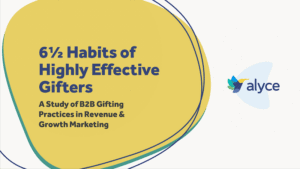“Just reaching out”
‘Per my voicemail today”
“Quick question”
If you’re cringing at these lines, you’ve probably been prospected by a corporate sales rep…. Or you are a corporate sales rep, like me.
And one thing that I’ve learned over the years is that people love to make fun of sales reps. A profession that has become so automated and impersonal that anyone on the receiving end of a less-than-perfect experience loves to tell us just how much they didn’t enjoy the outreach they received.
This isn’t uncommon, Erika Nardini, CEO of Barstool Sports recently poked this bear when she made some public comments about an email she received from a sales representative.
The email was generic and vague and offered little insight into why she was reaching out or what value she could bring to Barstool Sports. It was so generic that Nardini thought it was a bot so she posted the email and the sender.
This really ruffled some feathers in the corporate sales community, which happens to be the Community of Corporate Bro, who’s real name is Ross Pomerantz. This happens to be my community as well. When Pomerantz came to the defense of his community and this rep specifically, Nardini admirably decided to invite him on her podcast, Token CEO, to hash it out.
And some really interesting critiques and insights into the sales community came out of it.
What the Corporate Bro and Barstool CEO Clash Can Teach Us About Personal Experience
A Bit of Background First
For those who are unfamiliar with Barstool Sports, it’s a media company that carries a great deal of baggage with it.
I’ve been consuming their content for some time and honestly I go back and forth a lot with how I feel about them. They have great, funny blogs and podcasts about sports and pop culture. They’ve also had some really controversial perspectives and have been accused of being racist, misogynistic, homophobic etc.
Pomerantz’s Corporate Bro persona/website/company is a far less controversial figure.He creates content for the world of corporate sales reps and business development reps. He’s found a niche in this community and plays with the downfalls of this group.
I’m not here to defend or promote either of these personalities or their content (although this episode is worth a listen if you’re in sales or marketing.)
But as their audience, I was intrigued when I heard that they would be on a podcast together.
It’s not exactly like when the Avengers brought together your favorite superheroes but it’s kinda like that. There’s a ton of crossover between their audiences.
The Sales Rep Identity
Pomerantz’s main problem with Nardini was that he thinks the identity of the rep who sent this email should not have been exposed like it was. He points out that she’s a single black mother of a four-year-old, who got into tech sales to give her family a better life.
Nardini, to her credit, admits that she wishes she had handled things differently, but that she wanted to call out this impersonal barrage of emails that she and others like her get all the time. What happened was a candid conversation about a struggle as old as time: Sales Rep Vs. Prospect.
Sales is a tough gig. It can be exhausting, frustrating, stressful. It can also be fun, challenging, and rewarding. It used to be door-to-door (which I’ve done) then turned into cold calling, then turned into cold emailing and LinkedIn or other social messaging.
Any way you shake it though, if you’re a rep doing cold outreach, you’re doing it to help your company grow AND you’re going to get shot down much more than you’re going to breakthrough.
When I was doing door-to-door sales I was bothering a minimum of 40 people per day. If I got two of them to say yes it was considered a success.
Pomerantz compares it to baseball and says if you are a hall of famer for hitting a .300 average, then that means you essentially missed out on 70% of your at-bats. Pomerantz goes as far as saying that it means that 70% of the time you’re a “loser.”
Anyone who’s got “Director,” “VP” or “C” in their title is getting constantly pummeled with emails and cold calls day-in and day-out. Some of them are great: thoughtful, human, personal, crafted messages that are proven to be more effective than your typical, generic, templated, vague outreach.
But here’s the rub, it takes a lot of time to make outreach like that and you’re still not going to hit better than .300.
Bringing Personal Back To Sales
During the back and forth they disagree about a number of things, but what they can agree on is that the way sales is doing outreach is, for the most part, broken.
Nardini concedes that she doesn’t blame the rep who reached out to her and that this rep’s ‘boss or her boss’s boss has given her some innumerable email quota.’
That’s a fact at a lot of companies. After all we all hear that ‘sales is a numbers game’ and that ‘timing is everything.’
So the idea that you would use a tool where you can create cadences and sequences to reduce the lift on a rep to crank out emails so that you hit the same person 6-8 times (the average amount of times it takes in order to get a response) would make sense.
But those kinds of tools also make it easy to be lazy and depend on timing alone.
There’s a cost to this, Nardini says as much in her podcast:
“If you’re going to make spam a strategy, you’re going to take anything personal and human out of the sales process and you’re automating it.”
That’s true and that’s why so many companies are moving towards an ABM strategy and away from this scattershot approach to sales.
The problem is it takes so much time to be personal or human or boutique in your response.
The Alyce Approach
That’s why I love our approach. It solves the problem of being personal, but allows for sales teams to ‘scale personal.’ We return personal research to your reps that would take them weeks to do on their own in a matter of hours.
I always try to explain to my prospective customers the solution we offer through the eyes of their AEs and SDRs. I try to draw a picture for them, a picture they can recognize because I’m talking to people who are on the other end of that outreach.
It goes something like this: ‘imagine you opening your email and seeing a hundred emails in your inbox. All the subject lines are the same thing in different words per my voicemail, bumping this up to the top of your inbox, there’s a gift waiting for you, we can get you a xyz% ROI and so on and so on. Then in the middle of all those emails there’s one that sticks out The one & only #1 Yankees fan… from a Red Sox fan, from one parent to another or when’s your next gig? That’s how you stick out, that’s how you get personal and that’s how you break through the noise.’
Either way the podcast is worth a listen. The interview with Corporate Bro starts at the 45 minute mark, but Nardini shares at the end of the podcast some advice she would give to sales reps to help their cold outreach and it’s really helpful advice.
I’m hoping one thing comes out of this article: If you’re a rep, try to be personal, human and boutique in your outreach. A little effort goes a long way and it doesn’t take much to stand out.
If you’re a rep or a prospect and you have a great example of personal outreach that you’ve experienced, tell me about it. I’m always looking for new ideas, and I know I’m not alone.






